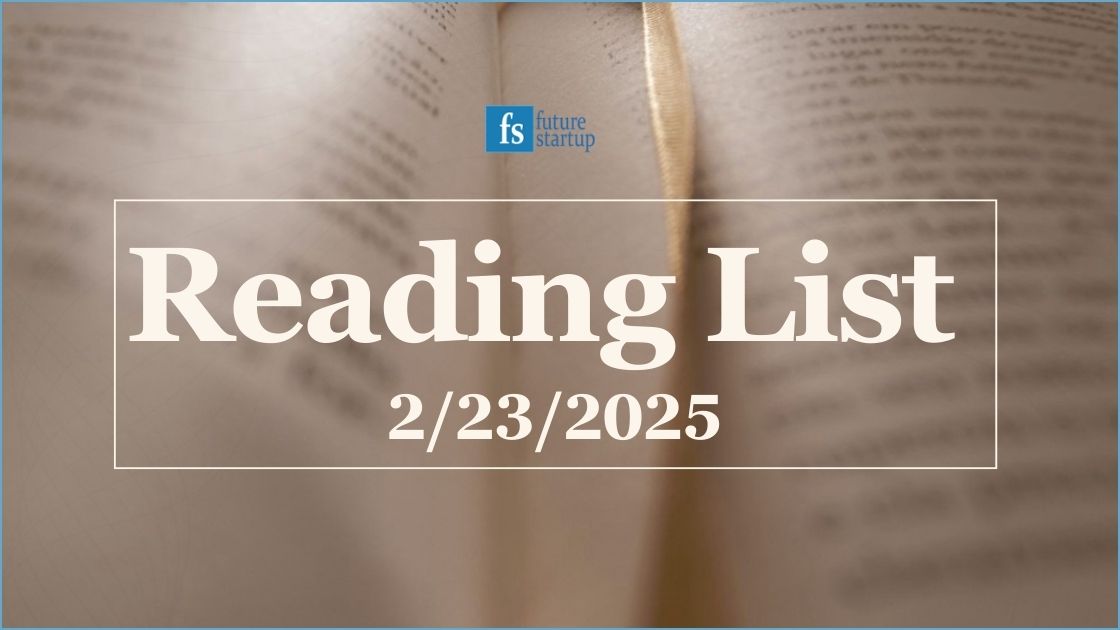
Reading List is a Saturday roundup of readings and links about personal growth, business, entrepreneurship, good work, and the human condition.
This edition features several reads on Schooling of Desire, Bookshop CEO Andy Hunter’s interview, ideas for a different and better way to live, and Rules' for Running My Membership Program. Enjoy.
“As Helen Keller eloquently stated, true happiness stems from our “fidelity,” our capacity to identify and invest ourselves in “a worthy purpose.” Our topic, virtue, has much to do with happiness because living virtuously is directly related to happiness, eudaimonia, or human flourishing. Virtue, I would argue, is not a very compelling end in and of itself. While virtues such as self-mastery, courage, justice, and integrity present themselves as noble ideals, they must be understood, as Aristotle observed, within the context of a higher-order desire to lead a happy life. Moreover, the most powerful education in virtue comes not from a lesson or an abstract ideal but from a life.
We know from experience that conceptions of the good life vary greatly not only from one individual to another, but also from one stage of a person’s life to another. Since antiquity it has been commonplace for wise persons to observe that popular notions of the good life as devoted to the accumulation of wealth, honors and power, or as given over to the pursuit of pleasure, are misguided. Human beings are more likely to flourish if they attend to those internal characteristics that define who they are themselves, rather than focusing on life’s external trappings of success.”
“Just recently, Bookshop launched ebooks to compete with Amazon’s giant Kindle business — a simple idea with some fun and complicated Decoder problems just under the surface.
Andy started Bookshop in January 2020 after years of frustration with Amazon. It was a bad time for the world, as covid-19 pandemic lockdowns were about to begin, but it was a great time to launch a website that let people support their local stores without going outside. And so the pandemic propelled Bookshop through some very quick early growth.
Bookshop is a mission-driven company with a strong philosophy, and that growth has paid a lot of money out to bookstores. Right there at the top of Bookshop’s website is a big counter telling you how much money it’s raised for local booksellers. Right now, that number is more than $35 million. So I wanted to know: how does that money work, and how can Andy afford to keep the lights on with so much of Bookshop’s profit going back to local bookstores? And I also wanted to know how he’s making enough money to expand, because that expansion into ebooks is a big one.”
“To the extent that you are operating as a builder, you approach your life as the ultimate project you are in charge of shaping and overseeing (i.e., building), by your own efforts and according to your own chosen vision and values, with yourself as its ultimate owner and beneficiary.
So, if you wanted to assess the extent to which you’ve been on a “builder’s mindset” in the past week, you might ask yourself: how much of it have I spent choosing to do things based on how I thought they would serve and advance my life? Did I have clear, personally compelling reasons for the things I did, whether in the form of enjoyment and curiosity or because of the resources and further experiences they would unlock? When I felt bored, afraid, or resistant to a given task, could I clearly answer the question “why is this worth it”? And if I couldn’t, did I feel free to stop or change what I was doing?
A builder’s mindset could apply to almost any particular activity you might choose to do, and for an extremely wide range of particular reasons. Maybe you thought it would help you figure out what you like doing or whom you like being with, so you can then design more of your life around those things. Or maybe you saw it as a stepping stone toward a particular valued venture (like getting fit, or executing on a work project, or remodeling your house, or raising your kids). Or maybe you were doing it to gain the necessary knowledge, skills, health, money, or other resources for advancing your valued venture(s). Or maybe you were doing it to avert a disaster that could plausibly upend your life or the pursuit of your valued venture(s). Or maybe it simply brought you joy. The key question is whether you were motivated to do it on the basis of some such honest judgment (implicit or explicit) about how it would serve your life, while broadly accounting for any opportunity costs to your life as a whole. Maybe you were even mistaken in thinking it would serve your life in some way—in which case you took stock of the error, extracting new wisdom you can now bring to bear on future decisions.”
“1. Have clear creative goals; mine are:
